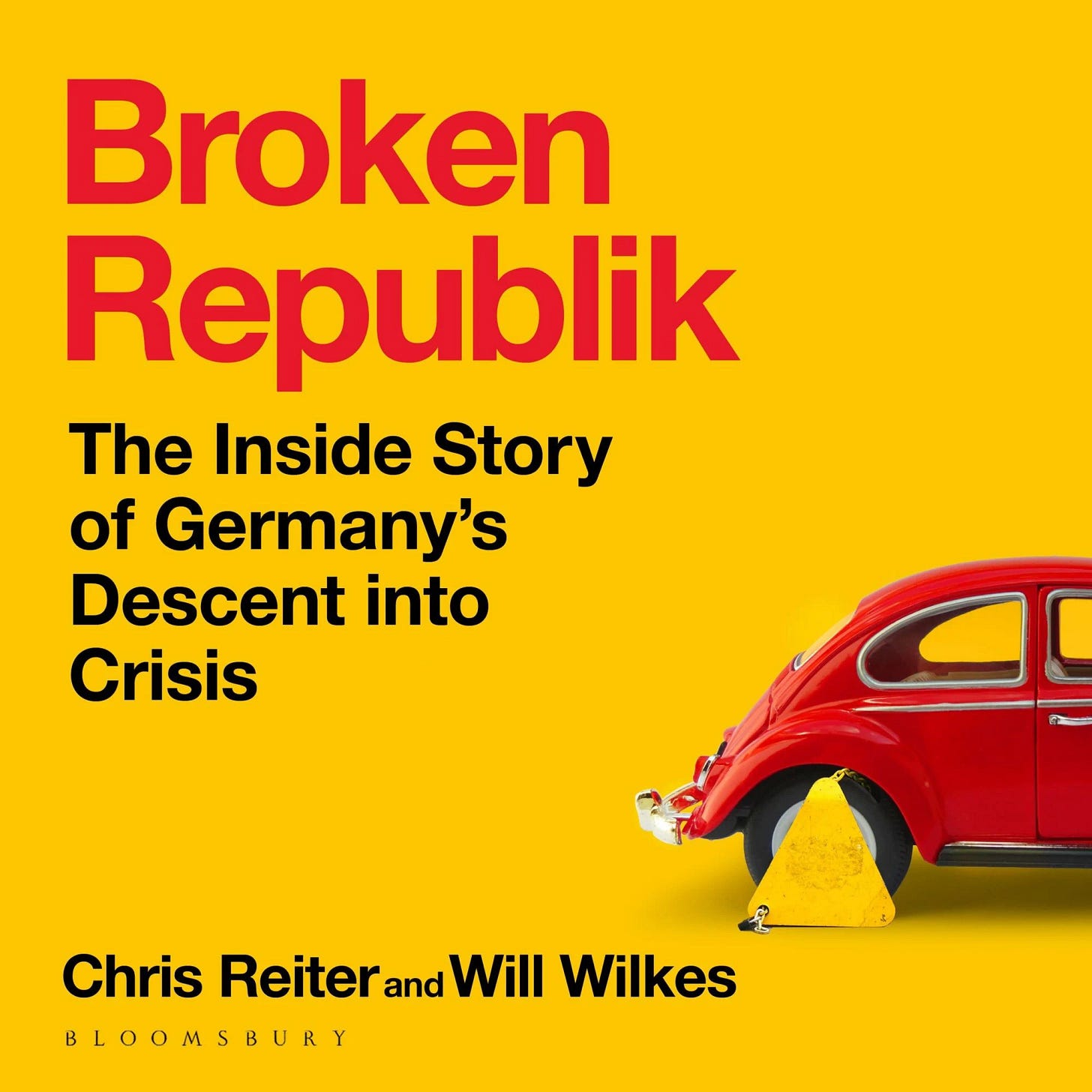Germany Needs a Holiday Today – Not to Recharge, But to Heal
June 17 used to be a national day of remembrance in honor of the victims of the 1953 uprising in East Germany. It needs to be revived for any chance of unity.
Guest contribution by Chris Reiter and Will Wilkes
Exactly 72 years ago, on 17 June 1953, protests over increasingly brutal conditions in East Germany escalated into a full-blown uprising. With as many as 1.5 million people taking part, the communist state cracked down, arresting more than 13,000 people and killing at least 50.
The uprising and its aftermath cemented Germany’s separation and meant East Germans were abandoned behind the Iron Curtain. When they finally shook off the authoritarian regime 36 years later, their territory was effectively annexed by West Germany, their lives were plunged into precarity after harsh economic reforms and they were treated with suspicion by their more affluent countrymen.
To have a chance at truly becoming a united nation, the sacrifice and bravery shown by East Germans in 1953 and again in 1989 deserve a day of remembrance. It would be a step toward shoring Germany’s fragile identity — a key part of our book “Broken Republik: The inside story of Germany’s descent into crisis” (the German version is “Totally Kaputt? Wie Deutschland sich selbst zerlegt”).
How It Started
While the Wirtschaftswunder in West Germany had started, conditions in the East were terrible. To improve basic supplies, the communist regime had no better ideas than to push workers harder (which has certain echoes in recent comments from Chancellor Friedrich Merz’s government). Unrest by construction workers in East Berlin triggered a nationwide walkout and calls for the free elections.
After the brutal repression, Konrad Adenauer implored Western Allies to allow “the entire German people the opportunity to live in freedom and unity.” But the first chancellor of the Federal Republic of Germany – which was only four years old at the time – was brushed aside.
British Prime Minister Winston Churchill wanted to avoid further tensions with the Soviet Union and pointed to Moscow’s promises to hold elections in East Germany. The U.S. response was food handouts: packages of peas, flour, lard and milk that were distributed via centers in West Berlin. The initiative was called off after a few months.
To be fair, the appetite for more bloodshed on behalf of the Germans was non-existent a few years after defeating the Nazis and with the Cold War just evolving. In this context, Germany’s division was safer and more reliable. Under those conditions, Bonn’s response was limited mainly to symbolism and so it declared June 17 as the “Day of German Unity.”
After the fall of the Berlin Wall, Germany decided it was “Mission Accomplished” and switched the national holiday to Oct. 3 to mark the signing of the reunification agreement between East and West Germany. That self-congratulation has obviously been premature.
How It’s Going
Another 36 years have gone by since reunification and the enduring differences are evident in almost all statistics – from income and pensions to life satisfaction and voting behaviour.
The far-right AfD has become the dominant force in the East, thanks in a large part to tapping into frustration from reunification – using slogans like “Vollende die Wende” (Complete the change) to equate today’s establishment with the authoritarian regime of the German Democratic Republic.
The party’s brand of ethnic nationalism resonates in a region that has almost no agency and is yearning for an anchor. For a population that had its postwar experience all but eradicated, there’s a sense of pride in being part of the legend of the 1,000-year Volk… in the “blood and soil” sense.
The provocation offered by toying with Nazi symbolism and rhetoric is also a way for downtrodden Germans from the East (and the West) to be seen. Amid a lack of opportunity to change the situation, attention is a more enticing option than being ignored and suffering in silence.
In the most recent elections in the former communist “new states,” the AfD won in Thuringia and was a close second in Saxony and Brandenburg (mainly due to tactical voting). While there has been enough of a cordon sanitaire to keep the nationalists out of power, anti-AfD alliances are unwieldy and aren’t likely to hold if trends persist.
Where to now?
In recent years, a sense of resignation has seeped into Germany’s approach to East-West divisions. That’s demonstrated by a memorial in Berlin that was supposed to honor the East German movement that led to the fall of the Wall. More than a decade after it was originally supposed to open, the so-called Bürger in Bewegung (Citizens in movement) monument remains unfinished – much like reunification itself.
In general, Germany lacks opportunities to show solidarity. Memory culture doesn’t extend much beyond rituals by state officials – such as speeches, wreathlaying and social media hashtags. There is little public participation to foster a sense of national belonging.
Merz’s CDU has recognized the issue to the extent that it’s proposing a new holiday on May 23 to celebrate Germany’s Basic Law. But that would again miss the point.
The country’s constitution was originally designed as provisional and be replaced after Germany reunites. Because that didn’t happen, a day devoted to constitutional patriotism would further underscore the East Germans as second class.
Also, how would people participate in that kind of remembrance? The best the Christian Democrats have come up with is a State of the Nation address. While German politicians should face the public, Germany needs to create forums for engagement that crosses social, economic and cultural boundaries.
June 17 could offer that opportunity by serving as a platform to address borders. The ones that used to exist within Germany and the ones that still exist in people’s minds.
It could manifest in simple ways like going from West to East, attending a service at a mosque or a Catholic church, or simply reaching across the garden fence and chatting with neighbors.
It’s the kind of effort that could at least start to patch some of the many fractures running through Germany. Without some intent, the fraying social fabric isn’t going to mend itself.
________________
Chris Reiter is co-author of “Broken Republik” from Bloomsbury (and the German version “Totally Kaputt?” from Piper Verlag). Born in the U.S. to a German father, he has lived in Berlin for more than two decades and works for Bloomberg News as a senior editor.
Will Wilkes is the other co-author of “Broken Republik”. Born in the U.K., he is raising his kids in Frankfurt and crisscrosses the country reporting on German industry for Bloomberg News.









